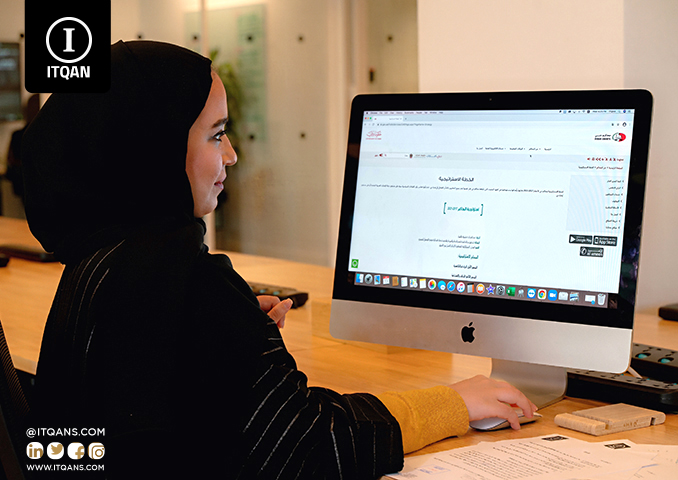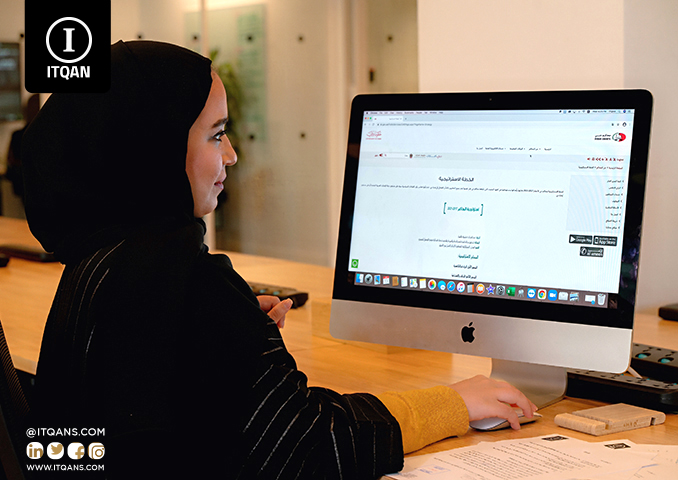How to establish a company in the UAE. The United Arab Emirates is one of the most attractive destinations for establishing companies and businesses in the world. Thanks to its strategic geographical location linking East and West, stable economic environment, and advanced infrastructure, the UAE has become a major center for trade and investment. In addition, the country provides a wide range of incentives and privileges to investors, including favorable tax systems and smooth government procedures.
Setting up a company in the UAE can be an exciting and rewarding experience, but it requires a thorough understanding of local laws and regulations. Whether you are thinking about establishing a local company, a free company in a free zone, or even a branch of a foreign company, there are steps and procedures that must be followed carefully to achieve success.
In this article, we will review the basic steps for establishing a company in the UAE, starting with choosing the type of company that suits your needs, through legal and administrative requirements, all the way to financial and tax aspects. The goal is to provide you with the necessary information to facilitate the incorporation process and ensure compliance with all local regulations and requirements, allowing you to focus on developing and growing your business in one of the most dynamic markets in the world.

Choose the company type
Choosing the type of company is one of the most important steps that must be taken when establishing a company in the UAE, as this decision greatly affects legal procedures, cost, and operational flexibility. Companies in the UAE are divided into three main types: local companies, free companies, and foreign companies. We’ll break down each of these types to help you make the perfect decision.
Local companies
Local companies are defined as companies established and managed within the UAE and subject to local laws and regulations. These companies are considered the ideal choice for those who want to target the local market and benefit from the infrastructure and advantages provided by the country. Local companies are required to have an Emirati partner who owns at least 51% of the capital. However, in some sectors and free zones, this percentage may be reduced or completely eliminated.
Free companies
Free companies are those established in free zones spread throughout the Emirates. These companies are characterized by high flexibility in establishment and management, in addition to many advantages such as 100% full foreign ownership, tax exemption, and ease of transferring profits abroad. Free enterprises are the ideal choice for companies seeking to expand into international markets or need advanced infrastructure to support their operations.
Foreign companies
Foreign companies are defined as companies that are established and managed from outside the Emirates, but have branches or representative offices within the country. This type of company allows expansion in the UAE market without the need to establish new legal entities, which saves time and effort. Foreign companies require special licenses from relevant authorities, and may be required to appoint a local service agent to facilitate operations.
Choosing the type of company depends largely on the nature of the business and future goals. It is important to carefully study all available options and consult legal and financial experts to ensure you make the most of the opportunities available in the UAE market.
Legal requirements
Establishing a company in the UAE requires compliance with many legal requirements that ensure a legal and smooth workflow. These requirements include obtaining the necessary licenses, commercial registration, and complying with industry-specific conditions. Let’s review these requirements in more detail:
Obtaining licenses
The first legal step to establishing a company in the UAE is to obtain the necessary licenses to practice commercial activity. The licenses required vary based on the type of business and the geographic location of the company. Basic licenses include:
- Commercial license: Granted to companies that wish to engage in traditional commercial activities such as buying, selling, and distribution.
- Industrial licence: Granted to companies that wish to practice industrial activities such as manufacturing and production.
- Professional License: Granted to companies that provide professional and consulting services such as legal and engineering services.
Investors must check the type of license appropriate for their company’s activity and apply to obtain it from the competent authorities.
Commercial registration
After obtaining the necessary licenses, comes the commercial registration step. Commercial registration includes registering the company with the Department of Economic Development in the relevant emirate. Commercial registration requires submitting a set of documents, including:
- Company registration application form.
- The company’s articles of incorporation and articles of association.
- A copy of the passports of partners and directors.
- Business address proof document.
- The initial license obtained from the competent authority.
You must ensure that all required documents are submitted correctly to ensure that the application is accepted and the commercial registration certificate is issued.
Conditions specific to different industries
Legal terms and requirements vary based on the industry to which the company belongs. For example, companies operating in the medical sector need to obtain approvals from the Ministry of Health and Community Protection, while companies operating in the food sector need approvals from the Ministry of Climate Change and Environment.
- Medical sector: This sector requires obtaining licenses from the Ministry of Health and providing proof of the academic qualifications and professional experience of workers.
- Food sector: This sector requires adherence to food safety standards and obtaining approvals from the competent authorities.
- Construction sector: This sector requires obtaining licenses from the various UAE municipalities and approval from the Real Estate Regulatory Authority.
It is essential that investors are aware of the terms specific to the industry they belong to to ensure full compliance with legal requirements and avoid any potential penalties.
By following these steps and ensuring compliance with legal requirements, a company can be established in the UAE in a smooth and legal manner that ensures the success and continuity of the business.

Finance and financial management
Finance and financial management
The financing and financial management process are vital factors for the success of any new company in the UAE. It is necessary to have an integrated financial plan to ensure business sustainability and achieve financial goals. In this section, we will discuss the most important aspects related to finance and financial management.
Funding sources
One of the first steps entrepreneurs should consider is how to finance their project. There are several sources of financing that may be available, including:
- Self-Finance: Founders can use their personal savings or assets to finance the company. This method gives them complete control over the company but carries a lot of risk.
- Funding from family and friends: Funding can be obtained from the founders’ close circle. Although this option may seem less formal, it requires establishing clear agreements to avoid disputes later.
- Bank loans: Banks are a traditional source of financing, and new businesses can obtain loans provided they provide suitable collateral and a convincing business plan.
- Investors: You can search for investors who want to finance the project in exchange for a share of equity. This option can save significant capital but may require giving up part of control of the company.
- Business incubators and accelerators: These entities provide financial support and guidance to startup companies, and can be an excellent opportunity for growth and expansion.
Account management
Account management is an essential process that must be carefully organized to ensure the company’s sustainability. Accounts management includes several areas, including:
- Budget preparation: A detailed budget must be prepared that covers all expected expenses and revenues. This helps in monitoring financial performance and identifying any deviations from established plans.
- Cash Management: It is essential to monitor daily cash flows to ensure there is sufficient liquidity to cover operational expenses and emergency needs.
- Financial reports: Periodic financial reports must be prepared, including the balance sheet, income statement, and cash flow statement. These reports help in evaluating financial performance and making informed decisions.
- Accounting systems: Available accounting programs can be used to facilitate the process of recording financial transactions and preparing reports accurately and quickly.
By properly organizing financing and financial management, new businesses in the UAE can ensure the sustainability of their business and achieve long-term success.
Our company’s role in establishing a company in the Emirates
At the conclusion of this article, it can be said that establishing a company in the UAE requires a deep understanding of many legal, administrative and financial factors. By choosing the right type of company, whether domestic, free or foreign, investors can successfully achieve their business goals.
In addition, companies must adhere to legal requirements that include obtaining the necessary licenses and properly registering the company, taking into account the conditions specific to different industries. This ensures compliance with local laws and regulations, facilitating the company’s operations and avoiding penalties and fines.
In terms of financing and financial management, selecting appropriate funding sources and managing accounts effectively is vital to a company’s continuity and growth. Understanding the taxes and fees imposed also contributes to better financial planning and avoiding any unpleasant surprises.
Therefore, establishing a company in the UAE represents an excellent opportunity for investors thanks to the thriving economic environment and advanced infrastructure. With the right steps and legal procedures, new companies can thrive and achieve long-term success in this promising market.
Frequently asked questions about establishing a company in the UAE
What are the financial requirements to establish a company in the UAE?
Financial requirements include registration and licensing fees, rental costs, and fees for legal and accounting services. Costs vary based on the type of company and the region in which it is established.
Can foreigners fully own companies in the UAE?
Foreigners can own 100% of companies in free zones. On the mainland, some activities may require a local partner who owns 51% of the company, but recent amendments allow full foreign ownership of some activities.
How can I obtain a residence visa for me and my family after establishing the company?
After establishing the company, it is possible to apply for a residence visa for investors and their family (wife and children) through the Immigration and Passports Department.
What is the validity period of a commercial license and how can it be renewed?
The validity period of a commercial license is usually one year. It can be renewed annually by submitting a renewal application and paying the required fees before the license expires.
Is there support available for new companies in the UAE?
Yes, the UAE provides many support and incentive programs for new companies, including business incubators, business accelerators, financing, and facilities for small and medium enterprises.
How do I choose the appropriate location for my project in the Emirates?
The choice of location depends on the type of business and target audience. If you are looking for complete foreign ownership, free zones may be the ideal option. If you are mainly targeting the local market, the mainland may be the best option.

















